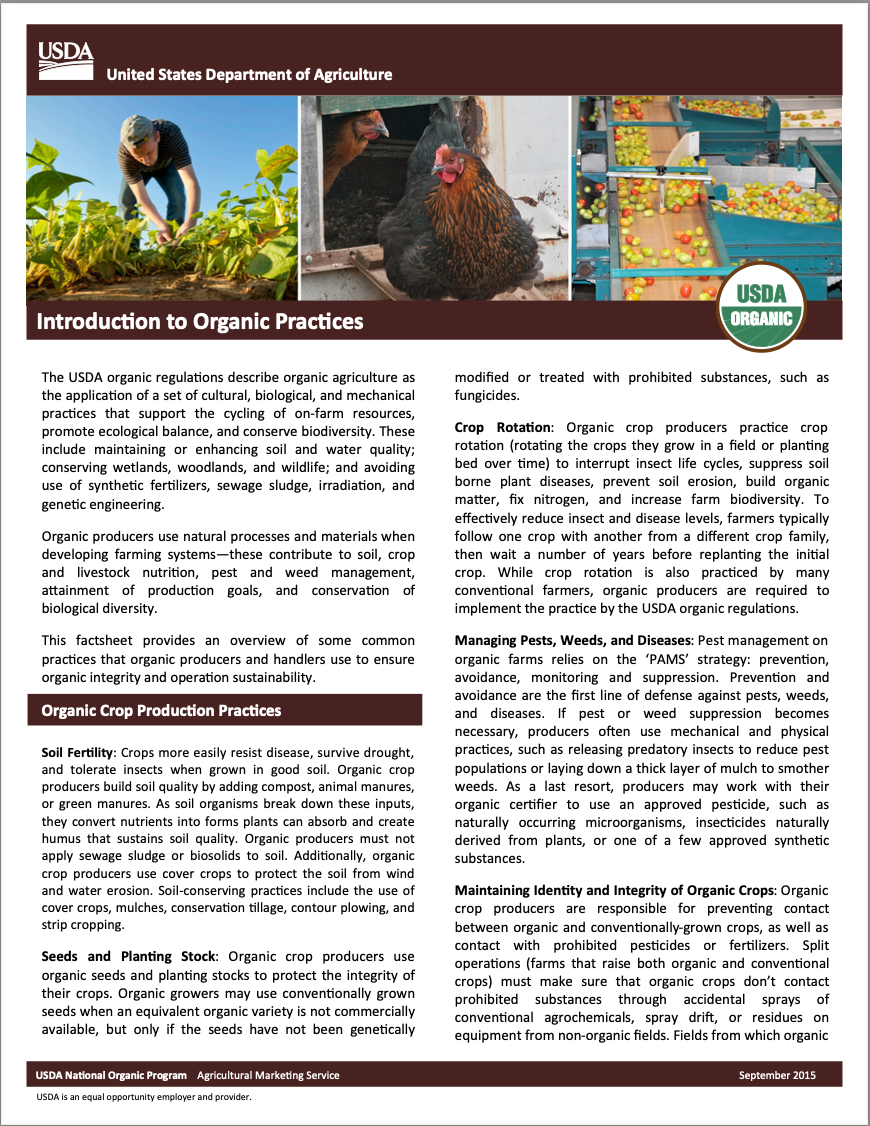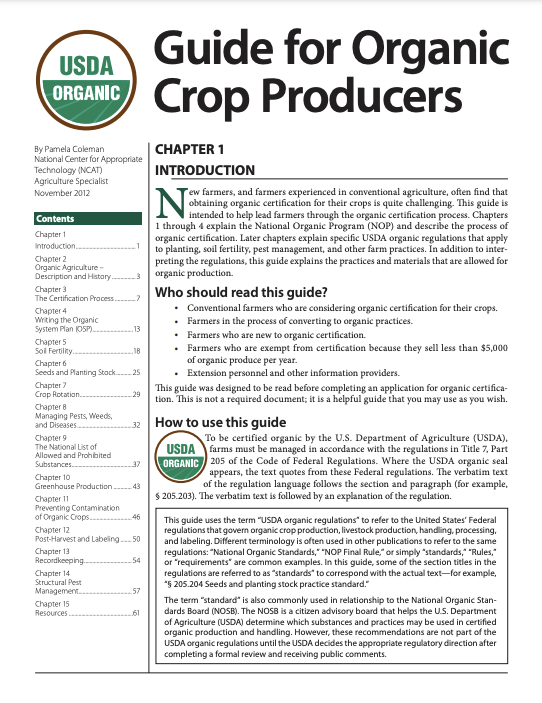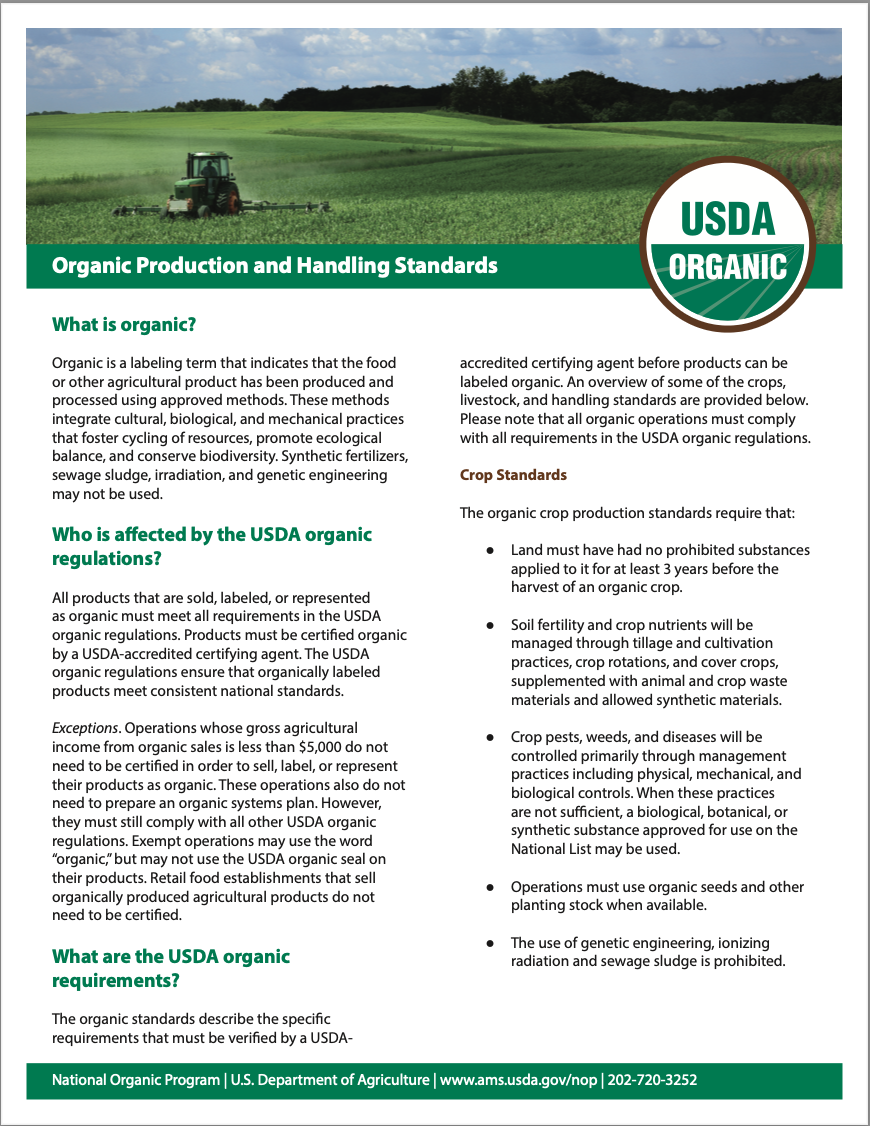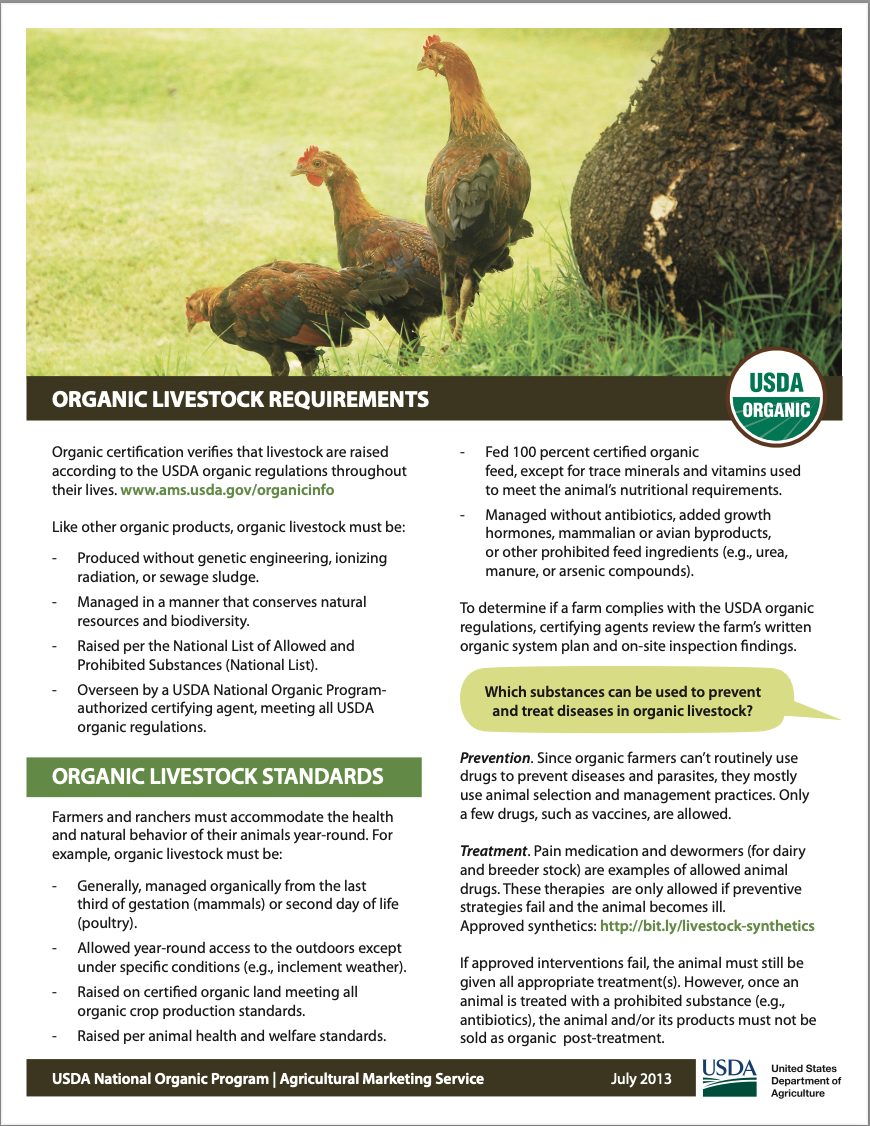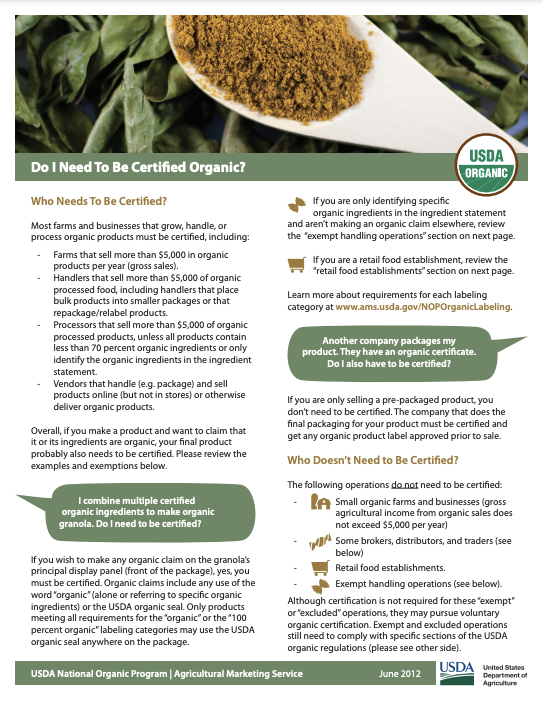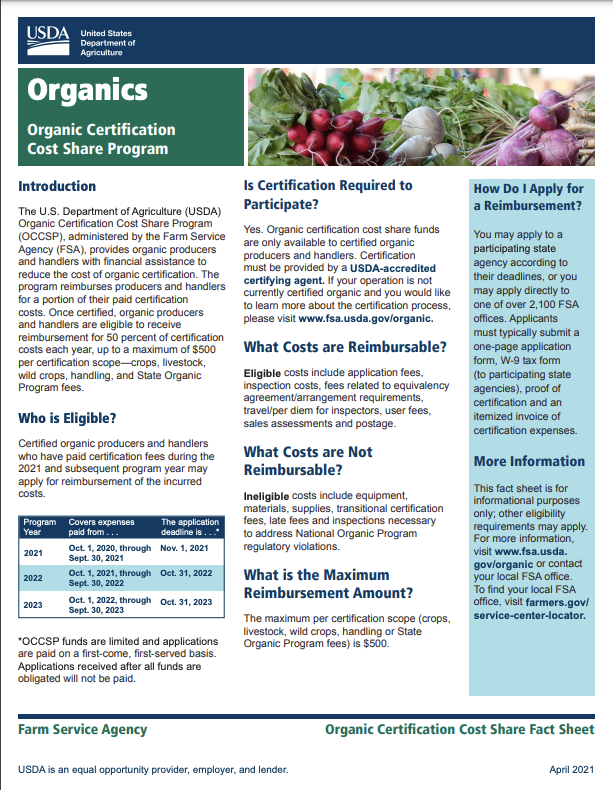
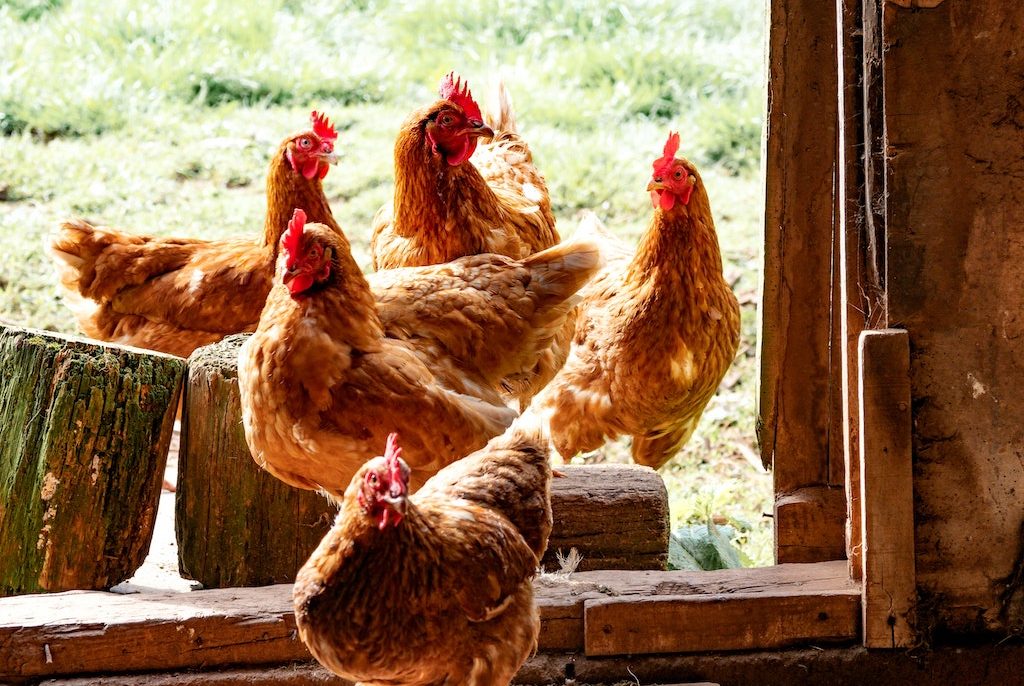
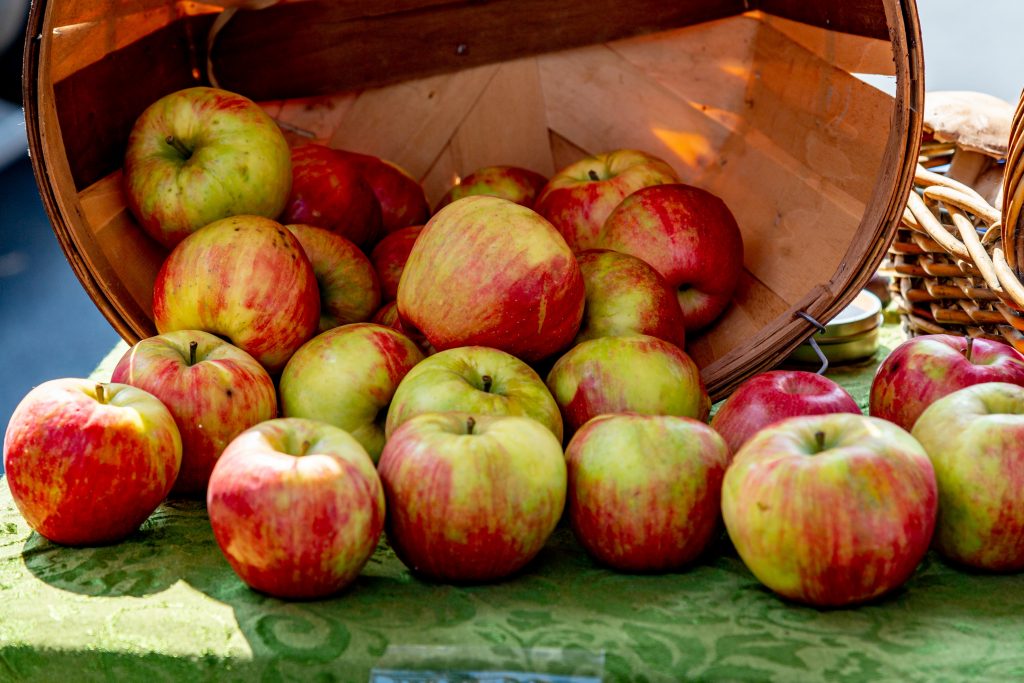
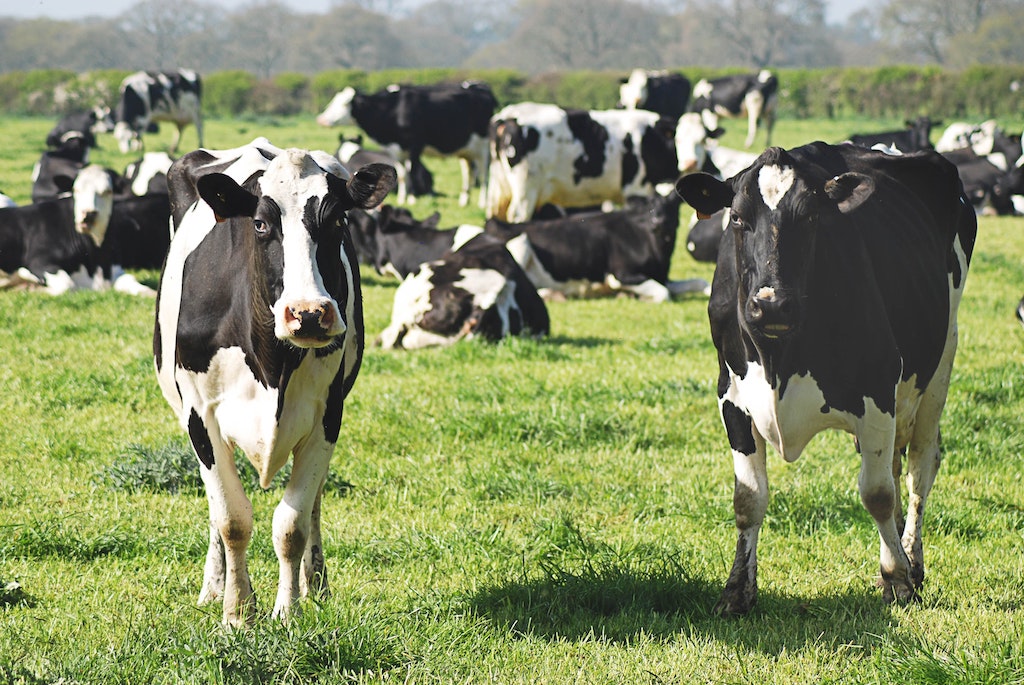
Organic Certification
What is required to become certified organic?
You will find more detailed answers to this question in the below resource USDA Guide for Organic Production but first and foremost, your land must be free of any disallowed inputs for a minimum of 36 months. The 36 months leading up to the "Organic Certification" are what are called "transitional".
What cost are involved (both initial and ongoing)?
Organic certification costs vary and are often on a sliding scale, based on the size of the operation. Total fees range from a few hundred for small, simple operations to several thousand dollars for larger, more complex operations. The cost will vary some between certifying agencies. It is usually based on the type of operation you have and acres. Processors are usually more than a simple crop production operation. Each certifying agency has its own fee schedule so you will need to find an agency you can work with. Typically there is an annual fee but a significant portion may be reimbursed through the "Cost Share Program" which you will find in the USDA Transitioning Information page linked in the resources below.
Become a TOPP Mentor or Mentee
MOA is a Transition to Organic Partnership Program partner in the Midwest region. We will help connect you with your mentor is you are in process of or thinking about transitioning. If you have already transitioned and want to help others, through the process you can join as a mentee. Sign up at the Organic Transition Page
How long does the certification process take?
Once you have chosen an Agency, you will fill out your "Organic System Plan" and turn in with an application and all your supporting documentation. i.e. seed tags, purchase records, land use affidavit etc. and once it has been reviewed and approved for inspection, they will have an Inspector contact you and schedule your inspection. Once the inspection report is turned in and any non-compliance or issues of concern have been corrected, they will send your notice of your approval for Organic Certification. This process probably takes approximately 4-6 weeks depending on the workload of the agency at the time received. Some agencies offer an expedited option for an additional fee.
If an organic certifying agency does initial or annual inspections - WHO pays for that?
The initial and following annual inspections fees are the responsibility of the operator. You will pay a yearly fee.
Do I have to be certified?
Most farms and businesses that grow, handle, or process organic products must be certified. However, there are some exceptions.
If an operation has a total farm/operation income of less than $5000.00, they are exempt from having to be "Certified". All the same rules apply and they will operate accordingly with an "Organic System Plan" in place, keeping all the same records and information as if they were certified. Although, they are not allowed to use the "USDA Organic" seal though and will not receive an official certificate.
You can find more detailed information about this in the Do I Need to be Certified Organic? factsheet below.
Transitioning Land
To begin with, it's important to read and understand NOP rules and regulations. Then find a certifying agency.
Land Requirements - Land must be free of any disallowed inputs for 36 months prior to Organic Certification. (Begins the day after the date of last disallowed product application/use.) If you haven’t managed the land during this time, you must have a “Land Use Affidavit” from the previous owner/manager.
Documentation is King:
If you do it… Prove it - Field Activity Logs, Harvest Records/Bin records, BOL’s etc. An easy way to do this is to keep a notebook/binder in your tractor/grain truck/combine etc. to log activities as you do them.
If you use it… Prove it - Seed Tags, Non-GMO statements if applicable, purchase records etc. You must keep copies of all input purchase records, sales invoices etc. Before you use it… get it approved - Use of any disallowed inputs will require your transitioning time to start over. Use only OMRI or WSDA approved products. If you can’t find it, call us.
Use ONLY certified Organic seed or Non-GMO Untreated Seed (seed tag must state Non-GMO or have a Non-GMO Statement) Non-GMO seed can be used the first 2 years of transition but on the 3 rd year certified Organic seed is required unless you have met the other criteria listed in NOP Standards.
Organic Certification Resources
MOA is not an organic certification agency, but we are glad to provide help and consulting to producers who are interested in becoming certified organic. Our team includes many people who have spent their entire lives in organic agriculture, and we even have an NOSB member on our Board of Directors.
Below are some helpful resource links for organic certification information:
Agricultural Marketing Service


